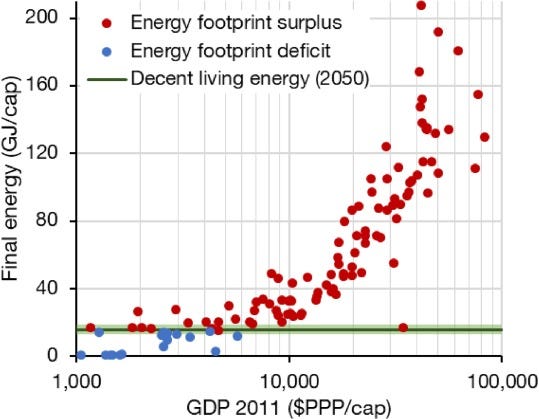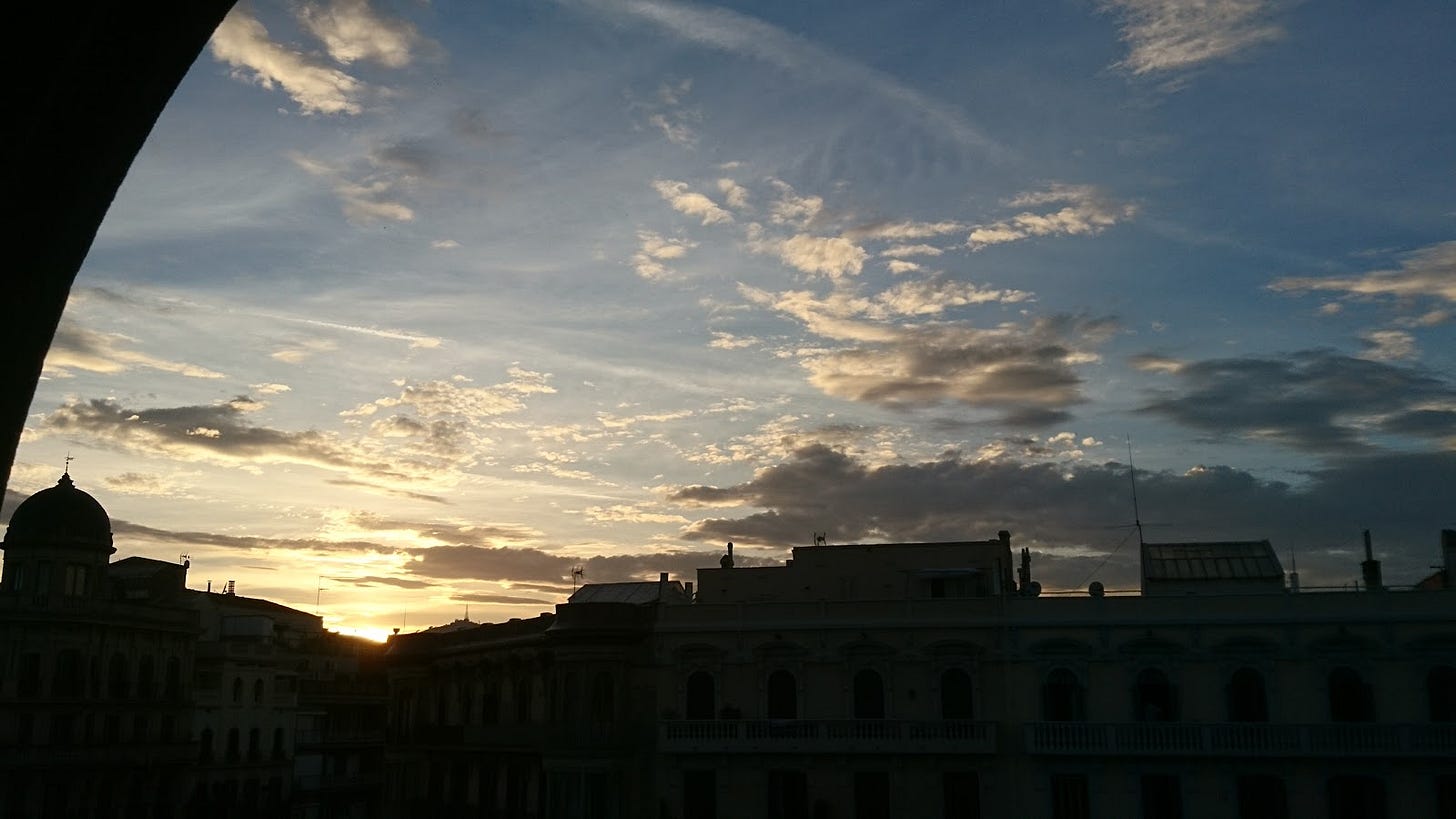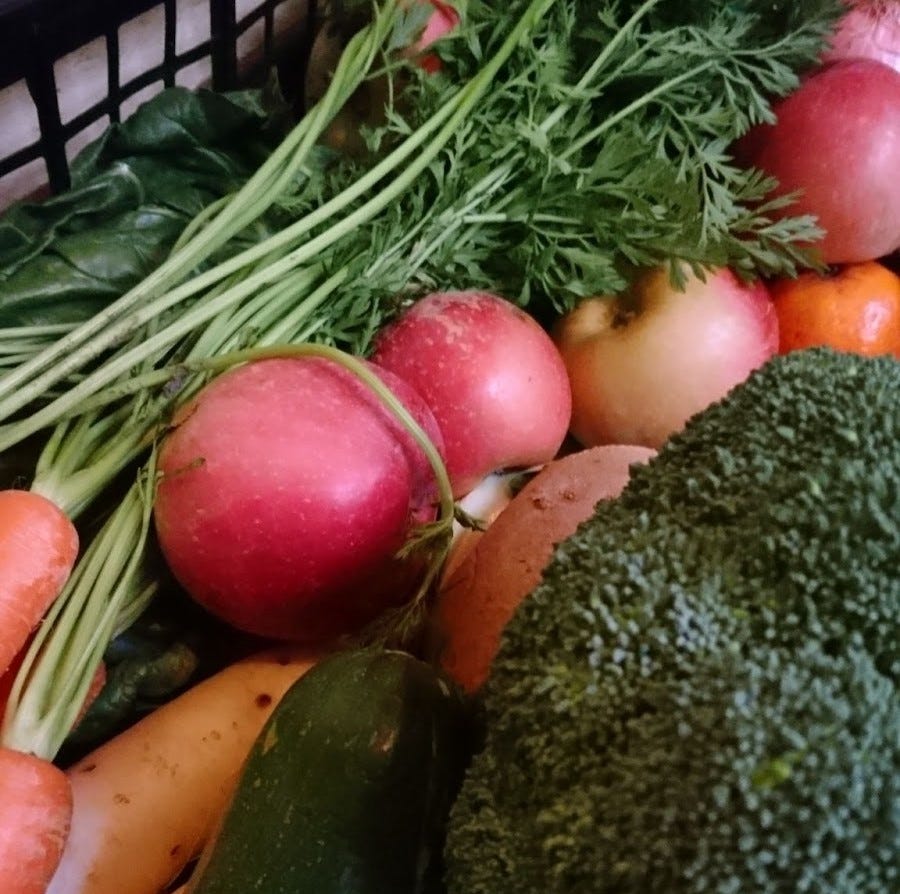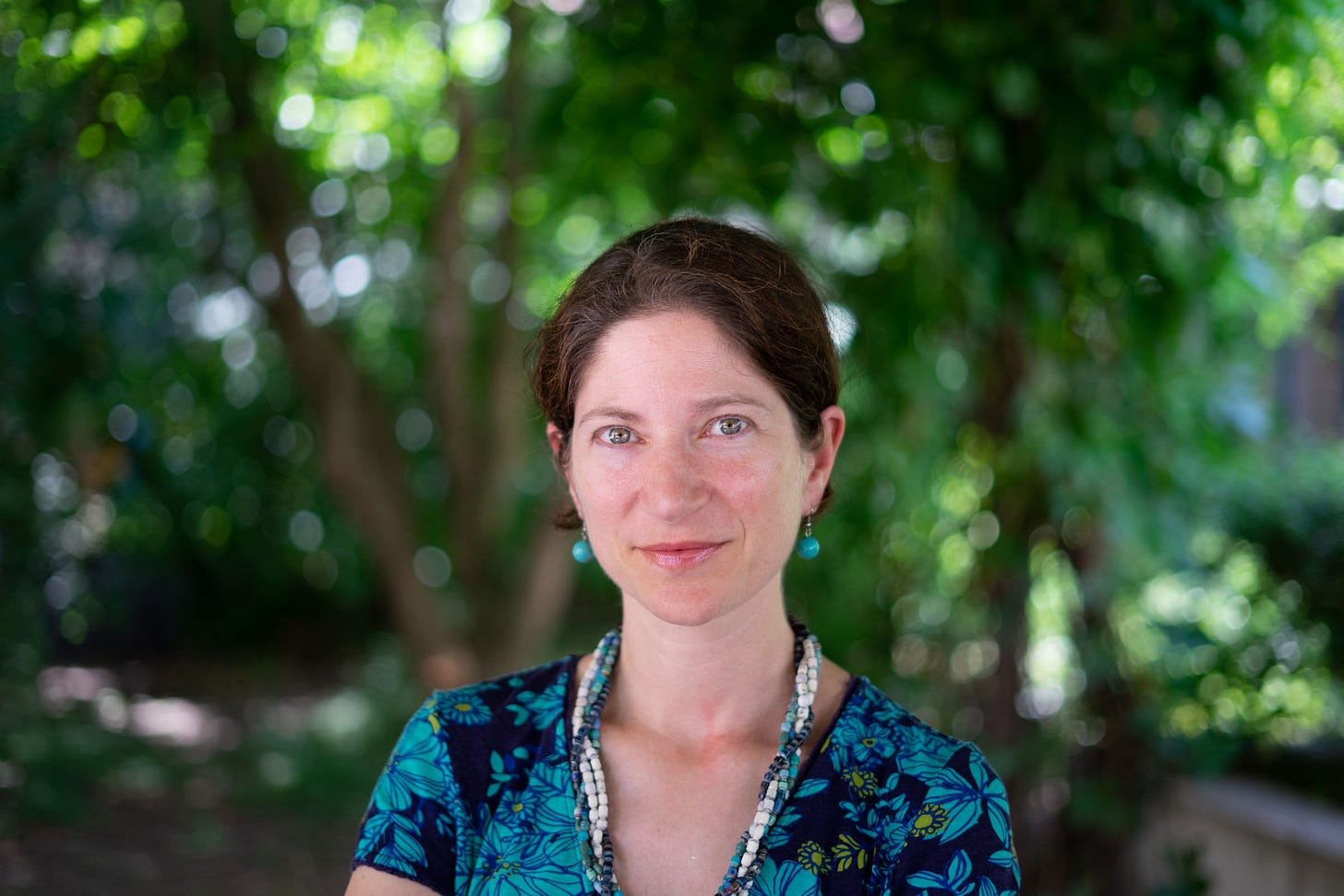Everyone can have decent living standards - at lower emissions. So why the hell aren't we doing that?
We spoke to economist Professor Julia Steinberger to find out what's up with **waves towards world** whatever we're doing instead.
This edition’s introduction is brought to us by Alison Geldart, freelance writer currently housebound in Barcelona.
I call myself a climate inactivist. I don’t – can’t – go on marches or glue myself to the road to disrupt the status quo. I wish I could (but maybe this child of the 80s is too old for that sort of thing anyway).
I can’t because for the past few years I’ve had to drop out of society to sort out my physical health. The struggle to treat a complex condition and its effects has left me housebound for several months. Living in the middle of the city of Barcelona, my surroundings couldn’t be more urban.
So how can I make a positive difference from here? How do I bathe myself in Nature when I’m stuck next to a river of traffic and surrounded by canyons of concrete?
Well, as well as supporting those who are pushing for change and having generous friends who share being out and about with me by photo or phone, I’ve learnt my role is to focus on who we need to be rather than what we need to do.
It started with an online ‘gamechanger’ course that set me on the path to an expansive world of new thinking.
In the course, I delved into the root causes of environmental destruction and social injustice. But I also came to appreciate existence in a different way. A revelation! What my culture has always taught me – that our man-made world is fundamentally separate from and superior to the natural world – is wrong! This intensely rich web of Life on Earth includes me too. Equally. If everyone thought like this, we’d never exploit or trash the planet like we do.
And Life is all around us if only we notice it, even in the city.
I’m lucky to live on the seventh floor, above the trees that line the main road below, with a big window. I notice the clouds passing, the playful wind and how the light changes throughout the day. I notice the local birds and what they’re up to. I wonder what life is like for the insects that scoot across my walls. I delight in my weekly basket of local fruit and vegetables.
I am Nature too. Because I was not assembled in a factory. I was born, I grew. I’m a hive of biological processes and a wonder of evolutionary design. My blood vessels and nerves branch like trees. My body is energy efficient, creates and repairs materials, maintains a stable temperature and uses resources carefully. What a marvel.
I’m a planetary ecosystem to the trillions of microbes who call me home (and without whom I would not function). I hope to be food for them when I die and they can turn me into soil so I can feed back into the cycle of life.
I may barely leave my room, but my mind has travelled far and wide. And I’ve had a seismic shift in my own mindset. All that said, the day I can again wander among trees or breathe in some fresh sea air will be a fine day indeed!
You can follow Alison on her blog ‘The medieval malleolus.’
Cover image credit: Lalo de Almeida/Panos Pictures
What’s Going On?
European Parliament votes for watered-down law to restore nature.
Related: EU wants fossil fuel sector to help pay to combat climate change.Shells digs further into its greenwashing with a new ‘climate tech’ startup that encourages jobs in… fossil fuels.
Related: Santander arranged a billion dollar oil bond after making a green pledge.Meat and dairy industry are funding misinformation to downplay their climate impact and demonise vegan alternatives.
Related: Beef production by three of the world's biggest meatpackers has been linked to illegal deforestation in Brazil's Cerrado.Related: Israel’s destruction in Palestine fuels demands for international ecocide law.
The cities stripping out concrete for earth and plants.
Related: Millions of monarch butterflies have gone missing, and there is one thing humans can do to help.
If you’d like to support The Green Fix, please help us with our operational costs by tipping us a virtual coffee. Funds allow us to provide high-quality content and events.
Focus On… How to live well within planetary boundaries
Cass Hebron speaks to Prof. Julia Steinberger on what it means to live well within planetary limits. Steinberger is a researcher at the University of Lausanne in Switzerland.
Please introduce yourself in your own words.
I am a researcher in the field of ecological economics. I used to work at the University of Leeds, I am now at the University of Lausanne and I recently led the Leverhulme Research Leadership Award project “Living Well Within Limits”.
The goal of the Living Well Within Limits project was to understand what the resource requirements of universal human wellbeing are, especially in terms of energy use, and how we could organise our societies differently to achieve this.
I am now co-leading the European ERC Synergy project “REAL – A Post-Growth Deal”, with Giorgos Kallis and Jason Hickel, both of Universitat Autònoma de Barcelona, which is the largest project ever funded on degrowth/post-growth economies.
Related: What is degrowth?
How can anyone define what the parameters for human wellbeing are?
Lots of people have lots of theories and definitions of wellbeing, as you can imagine, but really there are two major schools of thought.
The most mainstream school of thought, called “hedonic”, is around positive and negative individual feelings. The school of thought we preferred in the project is less well known, called “eudaimonic”. It defines well-being as flourishing within society.

This means the focus is on the reciprocal responsibility we have in societies to create good living conditions for each other to have wellbeing, especially around realising human needs.
Wouldn't we need to massively increase energy use to bring everyone up to a decent standard of living? How do we do this within planetary boundaries?
We exist at quite a dangerous and quite magical moment in time. Dangerous, because the fossil fuel, automotive and animal agriculture industries are pushing us beyond planetary boundaries.
Magical, because for the first time, we have the technologies which enable us to live safe and comfortable lives at very low levels of energy use, via well-insulated housing, heat pumps, induction stoves, LED lighting, and so on. When we model the energy required for universal decent living standards - following the work of Professor Narasimha Rao of Yale University -, we find it is possible at less than half of current energy use.

But we have to work quite hard to get there, especially on providing universal access to these technologies, deploying efficient-sufficient infrastructures, and massively reducing inequalities within and between countries.
Would a transition to living well within limits be possible under the current capitalist system?
No, absolutely not. The capitalist economic system is built around the protection of specific dominant industries: fossil fuel, automotive etc. They call the shots, including in our governments’ policies, and they require growth for their own stability.
They will never go gently into that good night where we need them to go … and fast. So we have to change our economic system to get rid of their dominance.
How can I, as an overwhelmed citizen, help to achieve a society based on wellbeing?
One direction which is quite important is active participation in political and citizen life. Join an advocacy or activist organisation, make friends, gain skills, participate in campaigns.
The age of the passive consumer is over, the age of the active citizen is just beginning.
Related: How to become an active citizen.
How does your work and activism influence you personally?
I am lucky that my work allows me to study the largest problems of our time, and share my findings as widely as possible, including in IPCC reports. This enables me to find meaning in my day-to-day activities.
But activism is what keeps my soul alive, when I am lucky enough to be able to participate in it. There is nothing like confronting a system of power directly, nothing else makes us quite as human.
As Rosa Luxemburg said, “Those who don’t move, don’t feel their chains.” We have to be activists and confront the systems of power trying to destroy us.
You can follow Prof. Steinberger on Twitter @JKSteinberger, and find more of her work on the UNIL page.
We’re looking for a volunteer!
The Green Fix is growing! We’re looking for a motivated person who’d like to help us build up our community & engage with our readers. If you’re enthusiastic about community-building and climate action, drop us a line at wearethegreenfix@gmail.com to chat.
So Now What Do I Do?
LEARN MORE
Join us in Brussels! On 13th March we’re holding a free workshop on learning how to advocate for an environmentally just economy, as part of EU Bioeconomy Week.
Sign up for this series of free webinars on joining the movement to ban fossil advertising! Starts 11th March.
TRY SOMETHING NEW
EU journalists are invited to apply for the Heinrich-Böll-Stiftung climate disinformation media fellowship. Deadline 10th March.
Creatives are invited to submit their responses to the theme “Ubuntu: I am because we are.” Deadline 15th March.
Mid-career artists can apply for a year-long programme on Cultural & Artistic Responses to the Environmental Crisis until the 21st March.
CHANGE THE SYSTEM
18-30 year olds can apply for this Generation Climate Europe programme on mobilising in the run-up to the EU elections. Deadline 7th March EOD.
International Women’s Day is on the 8th March! Find out how to get involved.
EE 30 Under 30 recognizes young people who are building a sustainable future through education. Nominate yourself or someone you know by 25th March.
By the way…
We’ve got a survey! Take 5 minutes to tell us what you want to know about in this newsletter.
The Green Fix offers low-cost sponsored slots on the newsletter. Book your slot by emailing wearethegreenfix@gmail.com.
Stay in the loop
You can follow us on Twitter @TheGreenFix, Instagram @thegreenfix_ and LinkedIn. Connect with Cass on Instagram @cass.hebron and LinkedIn Cass J Hebron.






Love love love both of these stories !!